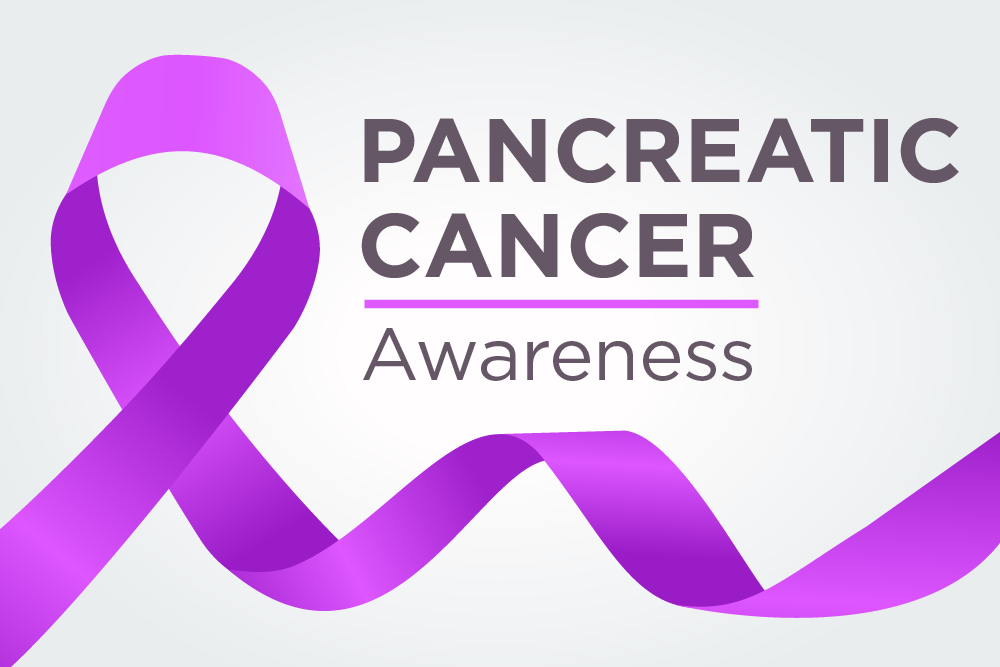Pancreatic cancer is known for being aggressive and challenging, often giving few clear warnings. That’s why awareness is our most powerful tool against it. This November, as we observe Pancreatic Cancer Awareness Month, we want to share some essential, life-saving information. We’ll equip you with crucial knowledge about symptoms and risk factors so you can advocate for your health and the health of your loved ones.
Understanding the Pancreas
The pancreas is a vital, fish-shaped gland nestled behind your stomach. It performs two major functions. First, it creates the enzymes your body needs to properly digest food. Second, it produces hormones, like insulin, which actively regulate your blood sugar levels.
Consequently, pancreatic cancer often earns the nickname “silent killer” because it typically shows few or no clear symptoms until the disease reaches an advanced stage. Furthermore, the pancreas’s deep location in the abdomen means tumors can grow unnoticed for a long time. Therefore, your awareness and early consultation with your doctor represent crucial steps in managing this risk.
Pancreatic Cancer Symptoms
Because pancreatic cancer often conceals itself, knowing the subtle, early signals is critical. While many symptoms can feel vague—like a routine stomach ache or indigestion—when these signs persist, they warrant a conversation with your doctor. We urge you to pay close attention to the following list. Being proactive can truly change the outcome.
Jaundice: This causes a noticeable yellowing of the skin and the whites of the eyes. Often, this happens when a tumor blocks the bile duct.
Unexplained Weight Loss and a significant Loss of Appetite.
Persistent Abdominal or Back Pain: This pain may spread to the middle back and often worsens after eating or when you lie down.
New-onset Diabetes or diabetes that suddenly becomes much harder to control.
Changes in Stools: Greasy, light-colored, or floating stools and/or dark urine.
If you experience these symptoms, particularly if they continue for a few weeks, don’t wait! Contact your doctor.
Pancreatic Cancer Treatment Options
A diagnosis of pancreatic cancer can feel overwhelming, but we want you to know that modern medicine continues to advance. Treatment plans always reflect the needs of the individual, often requiring a combination of approaches. Here at Comanche County Memorial Hospital, alongside the Cancer Centers of Southwest Oklahoma, we offer comprehensive care including:
Surgery: This offers the only realistic chance for a cure, though its possibility depends entirely on the tumor’s stage and location. Surgeons may recommend procedures like the Whipple procedure or a distal pancreatectomy.
Chemotherapy: We use specific drugs to aggressively kill cancer cells. Doctors often employ this treatment before surgery (to shrink a tumor), after surgery (to kill remaining cells), or as a stand-alone treatment for advanced stages.
Radiation Therapy: Specialists direct high-energy beams to destroy cancer cells in a targeted area.
We commit to providing you with high-quality, advanced cancer care right here in Southwest Oklahoma, ensuring you access the support you need close to home.
Steps to Manage Your Risk
While we cannot change the risk factors we inherited, we can change the way we approach our health. Prevention and early detection are great tools against any disease. Here are the most effective steps you can take starting right now.
Know Your Risk Factors: Consider factors like smoking (a major risk), a family history of pancreatic cancer, chronic pancreatitis, long-standing diabetes, and obesity.
Adopt Healthy Habits: Quitting smoking, maintaining a healthy weight, and limiting alcohol can significantly help reduce your risk.
Talk to Your Doctor: If you notice any persistent, worrying symptoms or carry significant risk factors, let’s start a conversation. Early detection truly improves treatment success.
Schedule Your Pancreatic Care at CCMH
At CCMH, your health is our absolute priority. We stand ready to offer expert care, compassion, and support every step of the way.
Specifically, our Gastroenterology Team specializes in comprehensive pancreatic health. From diagnosing and treating complex conditions like pancreatitis and pancreatic cancer to managing cysts and other pancreatic issues, we are here to help.
Ready to take the next step? Schedule your appointment with our Center for Digestive Health today.
Resources:
Disclaimer:
The Comanche County Memorial Hospital website does not provide specific medical advice for individual cases. Comanche County Memorial Hospital does not endorse any medical or professional services obtained through information provided on this site, articles on the site or any links on this site.
Use of the information obtained by the Comanche County Memorial Hospital website does not replace medical advice given by a qualified medical provider to meet the medical needs of our readers or others.
While content is frequently updated, medical information changes quickly. Information may be out of date, and/or contain inaccuracies or typographical errors. For questions or concerns, please contact us at contact@ccmhhealth.com.

